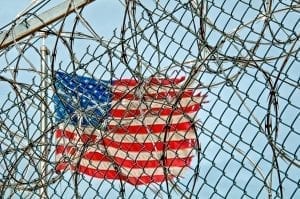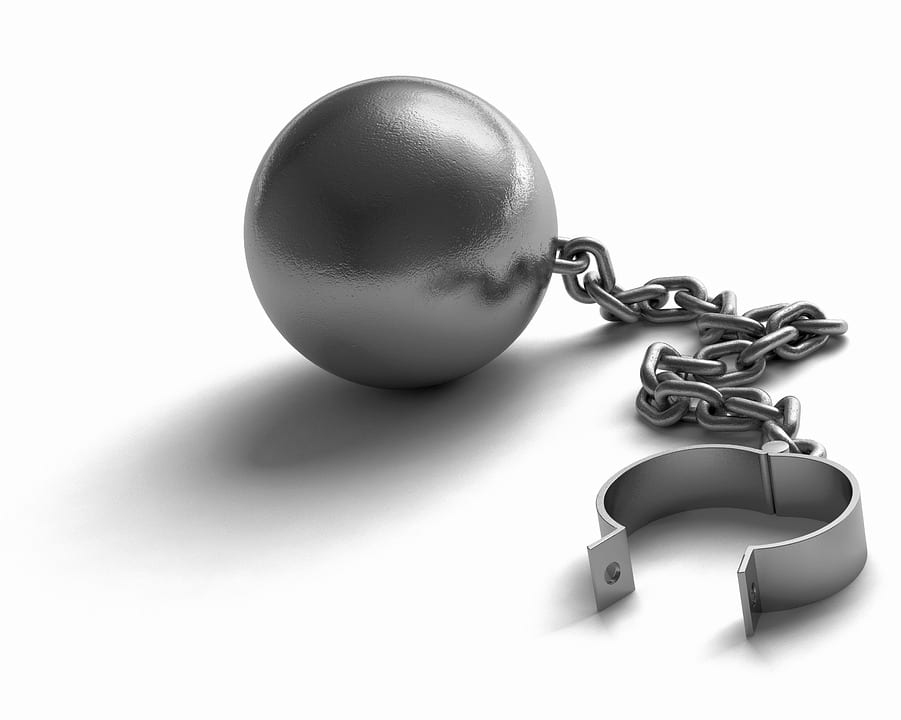The law seeks a reconsideration of the term slavery, insofar as it applies to private corporations that profit atop incarceration.
A federal lawsuit accuses the Arizona Department of Corrections, Rehabilitation and Reentry of facilitating modern-day slavery.
AZCentral.com reports that the lawsuit was filed late last week by five Arizona inmates. They are represented by the National Association for the Advancement of Colored People, better known as the NAACP.
The complaint, filed in U.S. District Court in Arizona, takes particular issue with the state’s use of private prisons. Such facilitates, alleges the lawsuit, are operated only to “generate revenues and profits for the monetary benefit of corporate owners, shareholders and executive management.”
The NAACP further argues that Arizona has, in effect, ceded its “sovereign power of incarceration” to corporations which treat inmates as “economic assets” undeserving of hygienic living quarters, quality medical care, and rehabilitative programs.
“The prisoners themselves become commodities and commerce. They become property,” said John Dacey, attorney and executive director of not-for-profit Abolish Private Prisons. “And, in our view, that is the kind of slavery that violates the Constitution.”

“We are asking the federal court to declare state laws and state contracts with private prison vendors to be violations of the United States Constitution, and to prohibit them going forward,” Dacey said.
KJZZ notes that the lawsuit would force a re-consideration of what, exactly, slavery means. Dacey suggests such a reconsideration is surprisingly unprecedented.
“The [U.S.] Supreme Court has never defined slavery,” he said. “So this will be new ground we’re breaking.”
While Dacey admits that slavery tends to connote involuntary servitude in especially cruel conditions, he said the term can also encompass ownership of another human being—or, critically, a financial interesting in treating one as property.
Dacey cited the stock market as evidence of private prisons’ reliance on human capital, in nearly its literal form. In 2016, for instance, the U.S. Justice Department was directed by the Obama administration to phase out its use of for-profit prisons.
Once the Justice Department released a public memo explaining its decision, stocks for several of the country’s largest prison corporations—like CoreCivic and GEO—plummeted.
But they began rising again in 2016, as then-Republican candidate Donald Trump promised to keep them running if he were to win the presidency. And, about a year after winning the election, Trump’s Justice Department formally rescinded its instruction, leading to a stock resurgence for private prison companies.
“So what was affecting the value of the stock shares was projections of the number of people that would be incarcerated in private prisons,” Dacey said. “The auction of human beings, if you will, through what we call public procurement and the government sector ties the value of an individual in a prison cell to the value of the stock shares of the corporations.”
However, industry spokespeople have defended for-profit prisons, noting that the government began contracting with corporations in the 1980s to provide safer, better-run alternatives to public prisons.
“We were created to help address these challenges, and since then, we’ve played a critical role for systems that are overcrowded or aging,” said CoreCivic spokeswoman Amanda Gilchrist. “We have successfully partnered with federal, state and local governments to creatively and efficiently meet their challenges in ways they could not do alone. As a result, many systems are safer and better able to provide quality programming for the inmates in their care.”
Since then, demand for third-party operators has risen and fallen—largely due to factors the industry maintains is outside of its control, such as disparate crime rates, changing sentencing protocol, and policy overhaul.
Regardless, companies like CoreCivic and GEO have been regularly accused of running sub-par facilities, and have been frequent recipients of government warnings and citations. Numerous lawsuits and investigations—some detailed by LegalReader—have found that privately-run prisons tend to be more dangerous than government-run prisons, comparatively under-staffed, and ill-equipped to offer inmates competent medical care.
“Private incarceration creates financial incentives to design and operate facilities that incarcerate more people for longer periods of time, provide fewer rehabilitative programs for successful re-entry to society, and discourage release of prisoners,” the lawsuit states.
Right now, the state’s corrections department has contracts with six privately-operated facilities. Approximately 7,000 of Arizona’s 40,000 prisoners are incarcerated in for-profit prisons.
Sources
Lawsuit: Arizona’s Use Of Private Prisons Violates The U.S. Constitution
Lawsuit targets Arizona’s privately run prisons
NAACP lawsuit targets Arizona private prisons, accuses state of practicing slavery


Join the conversation!